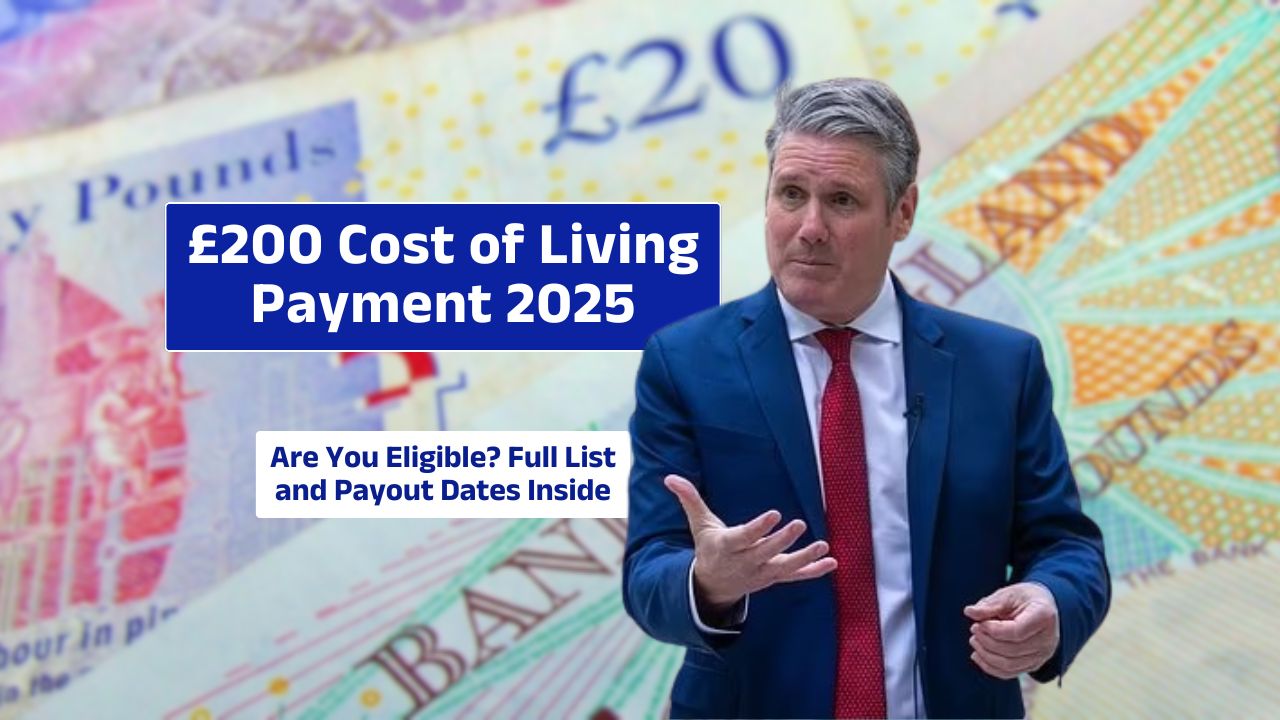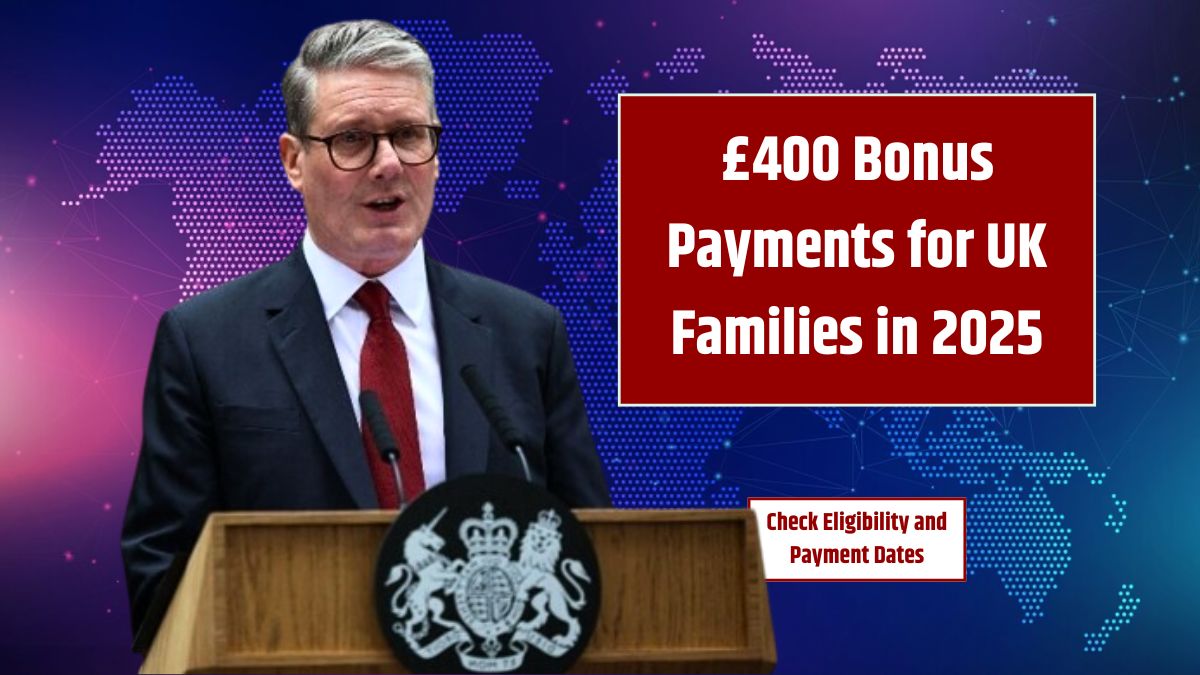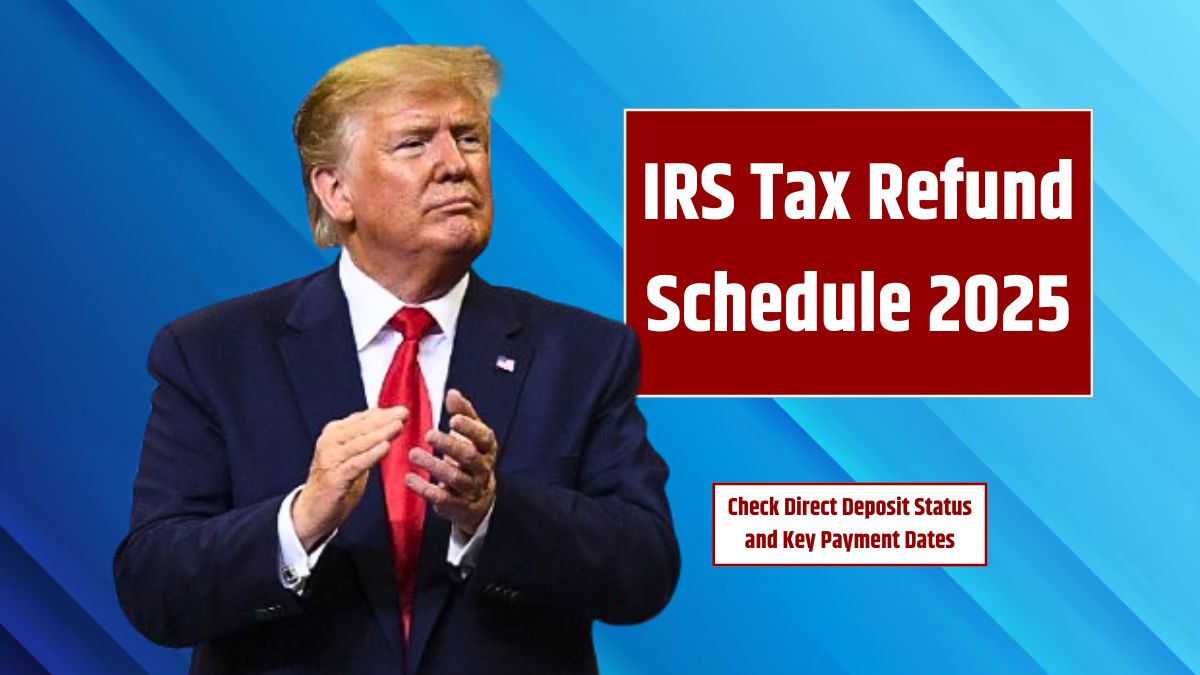With energy bills, food prices, and inflation continuing to rise across the UK in 2025, many households are struggling to keep up. To help ease the pressure, the UK Government has extended the Household Support Fund (HSF), offering a one-off £200 cost of living payment to those who need it most. Whether you’re a pensioner on a fixed income or a working family stretched thin by rising expenses, this guide will help you understand if you’re eligible, how to apply, and what other support might be available.
Overview
The £200 cost of living payment is part of the government’s broader Household Support Fund initiative, aimed at helping vulnerable households with essential costs.
| Aspect | Details |
|---|---|
| Payment Amount | £200 one-time payment |
| Fund Name | Household Support Fund (HSF) |
| Period Covered | June 2025 – March 2026 |
| Administered By | Local councils in England |
| Application Needed? | Yes (varies by council) |
| Eligibility | Low-income households, benefit recipients, others |
| Payout Schedule | Within weeks of successful application |
| Additional Help | Utility grants, food vouchers, school meal support |
Household Support
Originally launched during the COVID-19 pandemic, the Household Support Fund has now become a key part of the UK’s financial relief efforts. In early 2025, the government renewed the fund with £742 million in fresh funding, giving local councils control over how it’s distributed.
Each council runs its own program with slightly different rules, priorities, and application processes. So whether you’re in Birmingham, Dudley, or Wakefield, the support—and how you access it—can vary.
Eligibility
While councils tailor their own eligibility requirements, here are the main factors they usually consider:
1. Residency
You must live in the council area where you apply. If you’re applying through Birmingham City Council, for example, you must be a Birmingham resident.
2. Income
Many councils require applicants to show financial hardship. Here are some common thresholds:
- Household income below £40,000 (or £30,000 for single people)
- Less than £2,000 in household savings
3. Benefits
Some councils prioritise those on benefits such as:
- Universal Credit
- Pension Credit
- Child Tax Credit
- Housing Benefit
- Income Support
However, being on benefits is not always required. Councils may also support low-income workers not on welfare.
4. Special Cases
You may also qualify if you fall into any of the following groups:
- Pensioners not eligible for Winter Fuel Payment
- Parents of children on free school meals
- Full-time carers or people with disabilities
How To Apply
Want to get your £200 payment? Here’s a step-by-step guide.
Step 1
Search for your local Household Support Fund page. That’s where you’ll find all the application info, criteria, and required documents.
Step 2
Make sure you meet the eligibility criteria, especially around income, household size, and benefits status.
Step 3
You’ll likely need:
- Proof of income (payslips or benefit letters)
- Proof of address (utility bills or tenancy agreement)
- National Insurance number
Step 4
Most councils offer an online application form. Some may allow in-person or postal applications.
Step 5
Once submitted, councils usually process applications within 2–4 weeks. Payments are made via bank transfer or as vouchers.
Council Examples
Here’s how some councils are handling the scheme in 2025:
Birmingham
Applications open in June 2025. Priority given to families with children, pensioners, and residents not covered by other government support.
Dudley
Opened January 22, 2025. Applications closed early due to high demand. Payments made within 14 days of approval.
Wakefield
Automatically distributed supermarket vouchers to households on Council Tax Support—no application needed.
Other Support
The £200 payment is just one part of what the Household Support Fund can offer. Councils may also provide:
- Supermarket Vouchers – For families in urgent need of food
- Utility Bill Top-Ups – Prepaid cards for gas or electricity
- School Meal Help – Holiday meal support or vouchers
- Emergency Food Parcels – For families facing immediate need
- Winter Grants – Especially for older residents
So even if you miss the one-off £200, it’s still worth checking what else is available locally.
Tips
To boost your chances of receiving help:
- Act Fast: Some councils operate on a first-come, first-served basis
- Use Online Applications: They’re faster and more reliable
- Track Deadlines: Application windows vary by area
- Keep Paperwork Ready: Store income documents, bills, and ID in one place
Staying organised and proactive is the best way to get the support you need when you need it most.
FAQs
Is the £200 payment automatic?
No, most councils require an application.
Do I have to be on benefits?
Not always—low-income workers may also qualify.
When will I get the payment?
Usually within 2–4 weeks after approval.
Can I apply in any council area?
No, you must live in the council you’re applying to.
What else can I get from the fund?
Food vouchers, utility top-ups, and more help.













